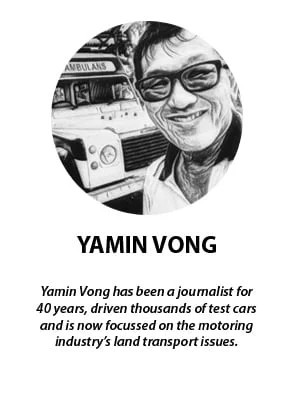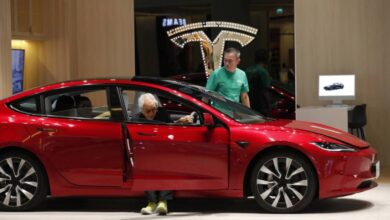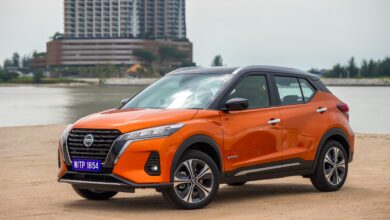Natural gas fuel not a hazard

[ad_1]
In 1969, Neil Armstrong, the first man to walk on the moon, described his very first step in these immortal words: “That’s one small step for man, one giant leap for mankind.”
Malaysia, unfortunately, took one giant leap backwards last week when the Cabinet banned the use of compressed natural gas (CNG) as a transport fuel. It comes at a time when governments all over the world are searching for an equitable energy transition to a sustainable zero-carbon future.
CNG and natural gas for vehicles (NGV) are used interchangeably in Malaysia because they are methane gases which are compressed but not liquefied. CNG and NGV are completely different from liquified petroleum gas (LPG), a butane gas Malaysians use in their kitchens when cooking.
Almost two weeks ago, transport minister Loke Siew Fook announced that the cabinet had decided to ban CNG and NGV because they were considered dangerous.
That leaves some 44,000 NGV vehicles running on the low-carbon natural gas no choice but to revert to high-carbon fossil petrol or diesel.
The ban inevitably attracted unwanted attention from NGV land transport users worldwide.
Nigerians, in particular, were alarmed, and their government was forced to issue several statements to allay a misplaced fear about CNG created by their Malaysian counterparts.
Since October last year, Nigerian president Bola Tinubu has been championing the development of CNG in his country under a presidential initiative.
Launched in October last year, vehicle owners in targeted segments of the transport sector are provided with free conversion kits. Already, some 100,000 vehicles have been converted to run on CNG.
Commenting on the ban in Malaysia, Nigerian presidential spokesman Bayo Onanuga reportedly said:
“The end of the 15-year CNG tank lifecycle means NGV users in Malaysia need to replace tanks. It was easier or cheaper to scrap its programme and continue with petrol and diesel since Malaysia had not built tank manufacturing capacity, which Nigeria had already started developing from year one.”
Building a CNG cylinder manufacturer plant requires substantial demand for cylinders and high capital investment.
Malaysia, however, does not have sufficient demand to justify doing so, but CNG cylinders are available worldwide because of the successful implementation of CNG as a low carbon transport fuel in India, China, USA and, of course, Nigeria.
What happened in Malaysia was that in the 1970s, when natural gas was being discovered at lucrative volumes, the government promoted it as a cheap low-carbon transport fuel, with national oil company Petronas appointed custodian.
The price formula for natural gas at the time was set at half the open market price of petrol, which at the time stood at about RM1.80 per litre.
Along the way, the price of liquid fossil fuels crept up inexorably, and ruling politicians capped the NGV/CNG price, effectively negating the price formula.
Petronas was caught between selling the gas below world prices and contributing heavily to government revenue. It has not been in favour of selling NGV/CNG ever since.
Ironically, Petronas has also led in establishing safety standards for the conversion of internal combustion powered vehicles to engines that use low cost, low-carbon natural gas.
Now, let’s discuss natural gas as a fuel for vehicles, and energy transition to a zero-carbon future.
It is acknowledged that land transport is difficult to decarbonise. That has led automotive and truck makers to try multi-fuel solutions.
Increasingly, it is being recognised that cars and trucks also must transition from internal combustion engines (ICE) to battery electric vehicles (BEV) with natural gas and hybrid petrol-electric drivelines as intermediate steps.
In fact, Malaysia, the world’s second largest producer of palm oil, has immense potential to produce natural gas from the fermentation of oil palm waste. Not only is this a sustainable fuel compared to fossil gas, it also produces about 30% lower carbon emissions compared to petrol and diesel.
Additionally, the capture of natural gas from palm oil mill waste prevents it from evolving into a greenhouse gas (GHG) with 30 times the toxicity of carbon dioxide.
Coincidentally, also about a week ago, China approved an energy policy that includes gases, especially hydrogen, as an energy source, removing its previous classification as a dangerous chemical.
From next year, when its energy policy takes effect, China will support hydrogen as the ultimate clean energy of the future with a series of measures including a price formula to make it more economically viable.
China’s energy law prioritises renewable energy and promotes the replacement of fossil energy with non-fossil and low-carbon alternatives.
An energy policy for Malaysia should include federal and Sarawak ministries which oversee economics, industry, natural resources and transport.
Sarawak, with the highest surplus of hydropower to make green hydrogen, is already leading the charge into the hydrogen economy with multi-billion ringgit green hydrogen projects, including two electrolyser plants and a public transport system, the Autonomous Rapid Transit, scheduled for commissioning in 2027.
It’s not just bio-mass and natural gas — Abu Bakar Jaafar, formerly of Universiti Teknologi Malaysia’s ocean thermal energy centre is also concerned about the neglect of the ocean as a source of energy. Ocean energy is being pioneered in Japan, and there is also a pilot plant in Port Dickson.
Natural gas as a fuel is not a hazard. The real danger stems more from the transport ministry’s dormancy regarding safety inspections that the Malaysian NGV Installers Association (or Mangvi) had been urging since its first meeting with the road transport department in 2014.
But inaction on the part of JPJ and Puspakom, its privatised vehicle roadworthiness agency, on NGV/CNG issues is a story for another day.
For now, Malaysia needs an energy policy czar to guide it through a step-by-step transition to a zero-carbon future. The appointee must put in place milestones on the National Energy Transition Roadmap, including one which will relieve Petronas of its duty as sole provider of CNG/NGV.
Yamin Vong can be reached at his Facebook page, yamin.com.my.
The views expressed are those of the writer and do not necessarily reflect those of FMT.
[ad_2]





